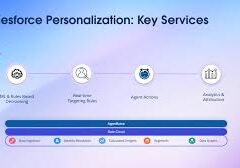PydanticAI: Empowering LLMs with a Robust Agent Framework
As the Generative AI landscape evolves at a historic pace, AI agents and multi-agent systems are expected to dominate 2025. Industry leaders like AWS, OpenAI, and Microsoft are racing to release frameworks, but among these, PydanticAI stands out for its unique integration of the powerful Pydantic library with large language models (LLMs).
Why Pydantic Matters
Pydantic, a Python library, simplifies data validation and parsing, making it indispensable for handling external inputs such as JSON, user data, or API responses. By automating data checks (e.g., type validation and format enforcement), Pydantic ensures data integrity while reducing errors and development effort.
For instance, instead of manually validating fields like age or email, Pydantic allows you to define models that automatically enforce structure and constraints. Consider the following example:
pythonCopy codefrom pydantic import BaseModel, EmailStr
class User(BaseModel):
name: str
age: int
email: EmailStr
user_data = {"name": "Alice", "age": 25, "email": "alice@example.com"}
user = User(**user_data)
print(user.name) # Alice
print(user.age) # 25
print(user.email) # alice@example.com
If invalid data is provided (e.g., age as a string), Pydantic throws a detailed error, making debugging straightforward.
What Makes PydanticAI Special
Building on Pydantic’s strengths, PydanticAI brings structured, type-safe responses to LLM-based AI agents. Here are its standout features:
- Structured Response Validation: Ensures that AI agent outputs conform to predefined schemas, reducing errors and improving reliability.
- Support for Multiple Models: Compatible with OpenAI, Gemini, and Groq models, with easy extensibility for others.
- Pythonic Agent Composition: Employs standard Python conventions for building and managing agents.
- Type-Safe Dependency Injection: Simplifies testing and iterative development by introducing type-safe dependencies.
- Integration with Logfire: Offers real-time monitoring and debugging for AI applications.
- Production-Ready Design: Developed by the creators of Pydantic, the framework integrates seamlessly with FastAPI, enhancing data validation, serialization, and security.
Building an AI Agent with PydanticAI
Below is an example of creating a PydanticAI-powered bank support agent. The agent interacts with customer data, evaluates risks, and provides structured advice.
Installation
bashCopy codepip install 'pydantic-ai-slim[openai,vertexai,logfire]'
Example: Bank Support Agent
pythonCopy codefrom dataclasses import dataclass
from pydantic import BaseModel, Field
from pydantic_ai import Agent, RunContext
from bank_database import DatabaseConn
@dataclass
class SupportDependencies:
customer_id: int
db: DatabaseConn
class SupportResult(BaseModel):
support_advice: str = Field(description="Advice for the customer")
block_card: bool = Field(description="Whether to block the customer's card")
risk: int = Field(description="Risk level of the query", ge=0, le=10)
support_agent = Agent(
'openai:gpt-4o',
deps_type=SupportDependencies,
result_type=SupportResult,
system_prompt=(
"You are a support agent in our bank. Provide support to customers and assess risk levels."
),
)
@support_agent.system_prompt
async def add_customer_name(ctx: RunContext[SupportDependencies]) -> str:
customer_name = await ctx.deps.db.customer_name(id=ctx.deps.customer_id)
return f"The customer's name is {customer_name!r}"
@support_agent.tool
async def customer_balance(ctx: RunContext[SupportDependencies], include_pending: bool) -> float:
return await ctx.deps.db.customer_balance(
id=ctx.deps.customer_id, include_pending=include_pending
)
async def main():
deps = SupportDependencies(customer_id=123, db=DatabaseConn())
result = await support_agent.run('What is my balance?', deps=deps)
print(result.data)
result = await support_agent.run('I just lost my card!', deps=deps)
print(result.data)
Key Concepts
- Dependencies and Results:
SupportDependencies: Specifies the inputs needed (e.g., customer ID, database connection).SupportResult: Defines the structure of the agent’s response (e.g.,support_advice,block_card).
- Dynamic System Prompts:
Customizes interactions by fetching context-specific data, such as customer names, from a database. - Custom Tools:
Adds functionality to agents, like retrieving account balances or calculating risk scores. - Structured Outputs:
By enforcing schemas (e.g.,SupportResult), PydanticAI ensures that outputs remain consistent, type-checked, and reliable.
Why PydanticAI Matters
PydanticAI simplifies the development of production-ready AI agents by bridging the gap between unstructured LLM outputs and structured, validated data. Its ability to handle complex workflows with type safety and its seamless integration with modern AI tools make it an essential framework for developers.
As we move toward a future dominated by multi-agent AI systems, PydanticAI is poised to be a cornerstone in building reliable, scalable, and secure AI-driven applications.












